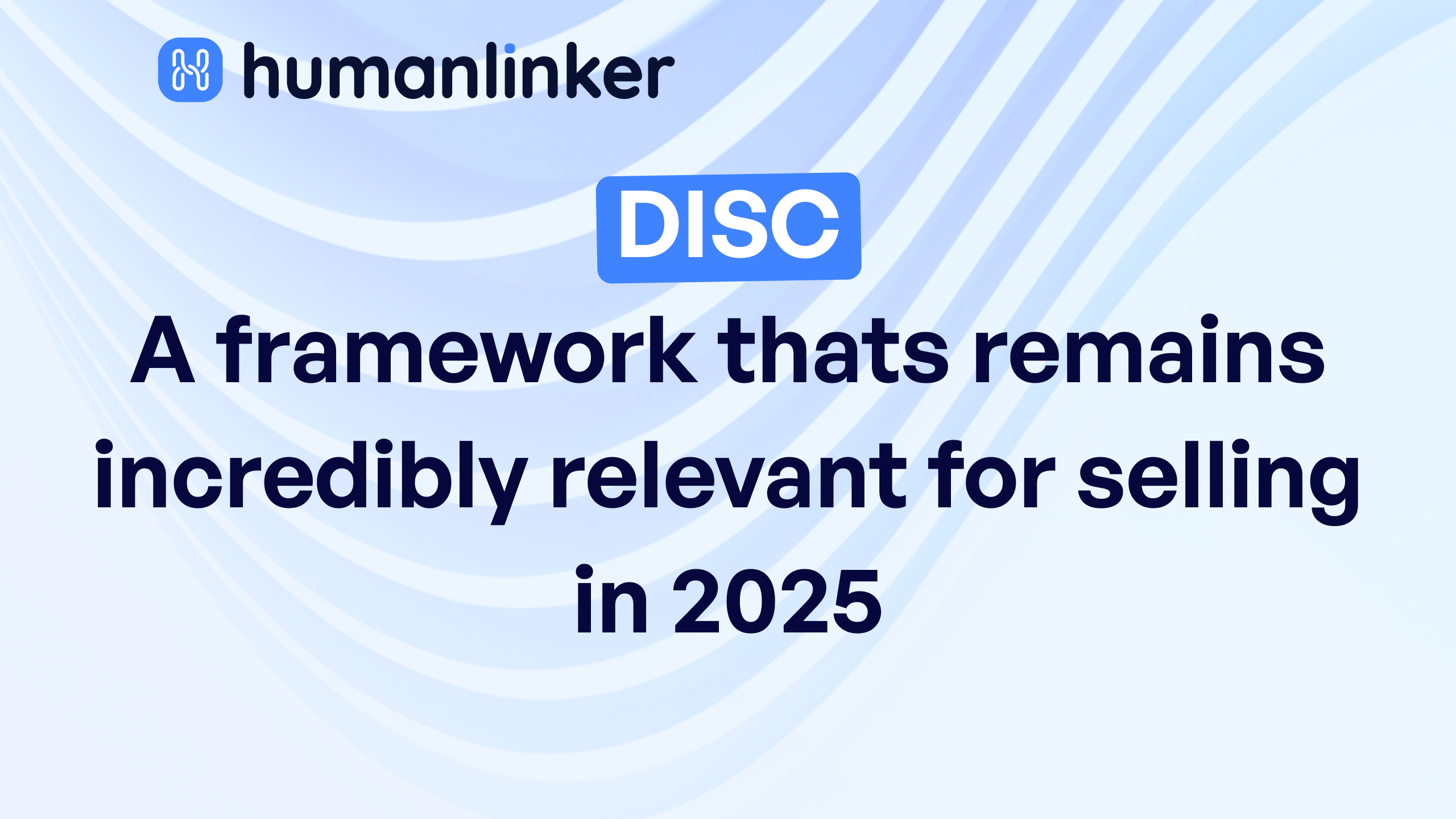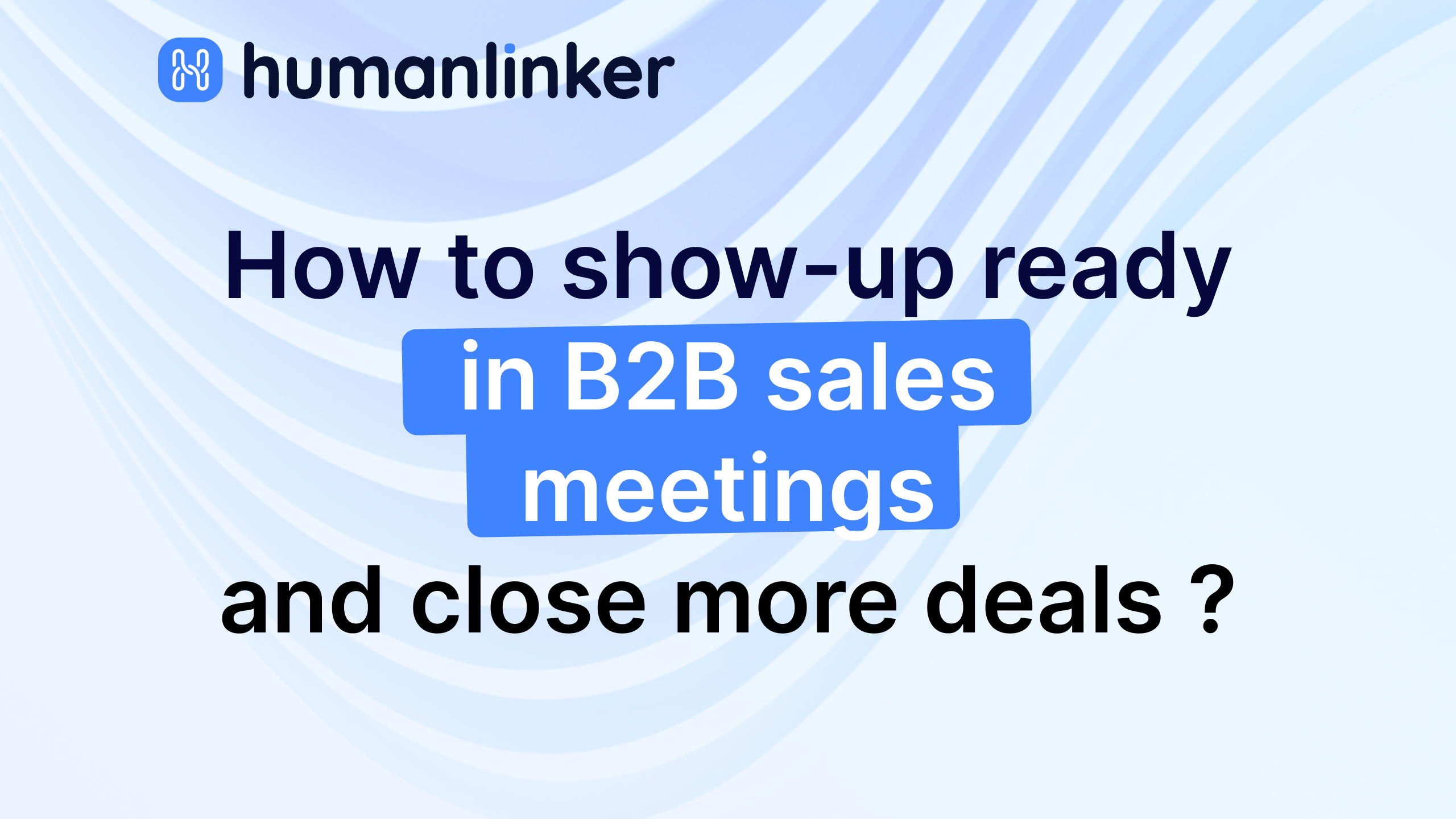Personality Analysis for Successful Sales Prospecting

In the realm of business, the role of a salesperson extends beyond mere product or service transactions. It delves into understanding customers, creating profiles for each prospect, and tailoring approaches to better address their specific needs. This is where Personality Analysis shines, acting as a pivotal tool for salespeople aiming for success.
"Personality Analysis enables the sales team to gain insights into their customers' characteristics and provide them with a tailored buying experience."
Using assessments like the DISC test, salespeople can identify customer personality types and fine-tune their sales strategies accordingly.
The most effective salespeople are those who ask the right questions, adapt their selling processes, and capitalize on personality analysis tools to pinpoint and chase the most lucrative leads.
Of course, the primary objective is to close deals. But more than that, personality analysis can foster lasting customer relationships, boosting the overall prowess of the sales team – and ultimately leading to greater success for the company.
"Whether you're a seasoned sales leader, a newcomer, seeking skill enhancement, or pondering a career in sales – this article is crafted just for you."
In this piece, we'll delve into the importance of personality analysis, share tips and strategies, and illustrate real-world examples of how it has propelled companies to sales triumph. This is an invitation to learn and discover pathways to steer your business to success.
1. The Significance of Personality Analysis
Personality analysis has found its niche in diverse areas like sales, management, career guidance, and even personal relationships. When it comes to sales, understanding the nuances of personality analysis can be broken down into pivotal components:
- Tailoring Your Sales Pitch: Understand what drives customers to align your product or service offerings with their motivations.
- Preferences: Recognize communication, information, and interaction preferences of customers to adapt your sales style effectively.
- Fears: Understand and address the fears and apprehensions of customers proactively.
- Clear Messaging: Based on a prospect's profile, opt for clear, jargon-free communication.
- Power of Non-Verbal Communication: Interpret non-verbal cues such as facial expressions, body language, and tone of voice.
- Seek Feedback: Regularly solicit feedback to refine your communication strategy.
- Empathy: Show genuine concern for your customers' needs, fostering better rapport.
Here are strategies to enhance your sales approach:
- Understand Different Personality Types: Use tools like the DISC personality test to adjust strategies.
- Prioritize Your Leads: Focus on the most promising prospects.
- Leverage Sales Tools and Automation: Harness CRMs, sales automation tools, and analytics.
- Use Powerful Software: In 2023, software like humanlinker offers features to streamline the sales process.
- Continuously Enhance Sales Processes: Periodically review and refine your sales process.
- Establish Clear Goals: Set measurable objectives to motivate and evaluate performance.
2. Customization and Strategy
- Customize Your Sales Approach: Adapt your strategy based on gathered insights.
- Avoid Stereotyping: Treat each individual as unique, using personality insights as guidance.
- Embrace Lifelong Learning: Continuously refine your understanding of personality analysis.
3. Real-Life Instances of Prospect Analysis in Sales
- Example 1 - Tech Company: Leveraged the DISC model to tailor communication, leading to increased sales.
- Example 2 - Real Estate Firm: Customized training programs to cater to diverse personality types within the sales team.
- Example 3 - Retail Business: Used character analysis to implement effective upselling strategies.
- Example 4 - Service Company: Improved customer loyalty by training representatives to recognize and adapt to different personality types.
These instances underscore that when wielded effectively, personality analysis can bolster communication, uplift customer service, elevate sales, and even fine-tune training and team dynamics.
"Achieving prospecting through targeting."
In wrapping up, understanding our prospects and clients is not a mere advantage; it's a crucial component for successful sales. Skillful use of tools like the DISC model grants invaluable insights into behaviors, preferences, and motivations.
"However, it's paramount to remember that these analyses provide guidance rather than definite predictions of behavior."
By amalgamating these insights with empathy, active listening, and a genuine commitment to addressing customer needs, we can not only refine our sales approach but also foster stronger relationships. Ultimately, in sales, success stems from understanding people and forging connections that resonate deeply with them.

AI in B2B sales: the top trends to improve conversion and customer retention




Find out in 30 minutes how Humanlinker can help you achieve your goals.




